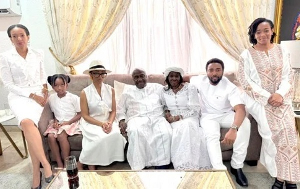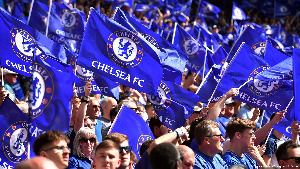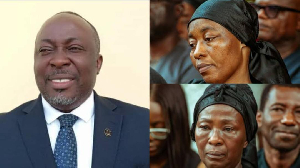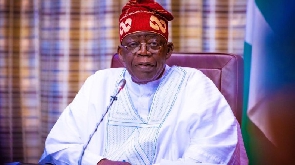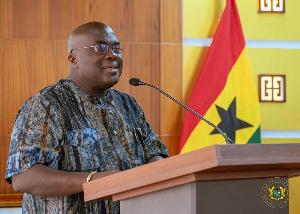Business News of Thursday, 7 May 2020
Source: www.ghanaweb.com
FLASHBACK: Ghana seeks $1 billion IMF support
In early 2009, Ghana turned to the IMF for a $1 billion loan to help stabilize the economy.
IMF advisors, working with the Ghanaian government, to prop up its foreign exchange reserves.
Ghana discussed programme options, which are essentially the standby arrangement, or Poverty Reduction and Growth Facility (PRGF).
The West African country was grappling with a swelling budget deficit and trade imbalances after the cost of imports surged to record highs last year.
Read the full story originally published on May 7, 2009
Ghana is in talks with the International Monetary Fund (IMF) to secure a total of at least one billion dollars of support to prop up its foreign exchange reserves, the Ministry of Finance said on Thursday.
The negotiations, which dominated meetings between the Ghanaian delegation and the IMF officials at this year's spring meetings in Washington, would continue in Accra next week. "We discussed programme options, which are essentially the standby arrangement, or Poverty Reduction and Growth Facility (PRGF)," the Ministry said in a written statement signed by spokeswoman Cecilia Kwetey to the Ghana News Agency in Accra. Ghana is currently grappling with a swelling budget deficit and trade imbalances after the cost of imports surged to record highs last year.
The statement said the PRGF had an advantage of concessional funding, at a fixed 0.5 percent interest rate payable over 10 years, as opposed to a market-based interest rate on the stand-by which also has a shorter repayment period of less than five years. In addition, Ghana expects to receive 420 million dollars in the third quarter of this year as part of IMF's new post-G20 summit commitment to increase its allocations of Special Drawing Rights (SDRs) to member countries, the Ministry said. The SDR is an international reserves asset, created by the Fund to supplement the existing official reserves of its members. The fund also agreed to support Ghana's balance of payments gap, the Ministry added.
"Preliminary indications are that the Fund's support could be in the order of around 600 million dollars over a two-three-year period, which together with the additional special drawing rights allocation, would boost Ghana's gross foreign exchange reserves by around 1 billion dollars," it predicted.
Ghana is also suffering from the impact of lower remittances sent home by workers abroad as the global economic crisis bites. Ghanaians living abroad send home about $3 billion each year, almost a fifth of the gross domestic product. In a speech in London as part of a three-day visit to Britain, President Evans Atta Mills said the economy he inherited was not as robust as it was said to be, but added that Government was not interested in blame game. He reassured that his administration was prepared to take the challenges to turn the economy around. While welcoming assistance from development partners for the growth of the economy, President Mills stressed that Ghana could not forever rely on donor hand-outs. "The time has come to look for home-grown solutions," he said, adding, "our team is capable of putting the economy on a strong foundation". President Mills assured investors of a sound investment climate that hinged solidly on open, transparent, honest and accountable governance. Ghana's budget deficit currently stands at a provisional 14.9 percent of Gross Domestic Product in 2008 -- a gap the new government plans to narrow to 9.4 percent of GDP by the end of 2009. President Mills had earlier debunked allegations that Government was spending lavishly on visit which was at the instance of Britain. 7 May 09


